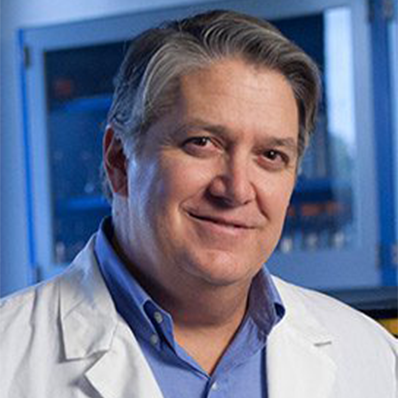Longo, Valter
Professor of Gerontology and Biological Sciences
WE are interested in the biology of aging and neurodegenerative diseases including Parkinson and Alzheimer. Our focus is on the connection between systemic dysfunction and aging and cognitive decline. One of our ongoing questions is how do aging and insulin resistance accelerate brain aging and Alzheimer's disease, with focus on neuroinflammation
Lyden, Patrick
Professor of Physiology and Neuroscience and Neurology
The Lyden lab has been funded by NIH, VA and AHA for over 30 years. The lab is focused on translational pre-clinical stroke modeling, pharmacology, and vascular biology. The lab has considerable experience with a variety of animal models; behavioral testing; histology; and cell biology. The lab was selected by NINDS to develop and manage the Stroke Preclinical Assessment Network (SPAN) as the Coordinating Center. Current projects include studies to determine the mechanisms of differential vulnerability in the neurovascular unit; effects of microglial activation on neuronal survival; and blood brain barrier disruption during stroke and mild traumatic brain injury.
Mather, Mara
Professor of Gerontology, Psychology, and Biomedical Engineering
The autonomic nervous system plays an underappreciated role in age-related change in the brain and cognition. But the sympathetic hub region in the brain (the locus coeruleus) is one of the first brain regions affected by Alzheimer’s disease pathology and deep sleep, a period of high parasympathetic activity, is critical for clearing out the potentially toxic proteins generated by the brain’s activity during the day (it is the aggregation of such proteins that leads to the hallmark plaques and tangles seen in Alzheimer’s disease). Our research is investigating how both sympathetic and parasympathetic function affect brain function and cognition in aging and how interventions that increase parasympathetic activity may enhance brain function in older adults.
Petzinger, Giselle
Associate Professor of Neurology (Clinical Scholar)
Dr. Giselle M. Petzinger is a Movement Disorders Specialist and neuroscientist in the department of neurology at USC Keck School of Medicine. Her training includes MD at USC, Neurology Residency at Yale, Fellowship at Columbia University and experimental therapeutics at the Parkinson’s Institute in the bay area. Her research involves animal models and clinical studies to investigate lifestyle on cognitive/motor function and synaptic plasticity in frontal-striatal and cerebellum circuits. Other studies include investigating the relationship between motor performance and cognitive function and related circuitry in PD and the role of compensation using behavioral, neuroimaging and neurophysiologic metrics. Her work also focuses on understanding neuro-energetic mechanisms of synaptic plasticity in PD focused on mitochondrial function and L-Lactate.
Pike, Christian
Research in the Pike Lab is broadly focused on Alzheimer’s disease (AD), with the general goals of elucidating factors that regulate AD pathogenesis and pursuing translational strategies for the prevention and treatment of the disease. Our approach to investigating research questions involves the use of complementary cellular, biochemical and molecular techniques to analyze relationships in human tissues, rodent models, and cultured cells. Current areas of research focus in the Pike Lab include the contributions of the genetic risk factor APOE4 to AD pathogenesis, sex differences in AD, and the protective efficacy of longevity-promoting interventions including fasting mimicking diet and candidate compounds. We seek to identify and elucidate the mechanisms underlying AD risks and use this information to develop therapeutic interventions.







